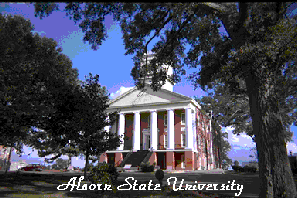
In just four months, North Carolina Central University NCCU)
has regained its School of Business accreditation from the Association of
Collegiate Business Schools and Programs (ACBSP).
“We are extremely pleased about this news,” said Chancellor James H. Ammons.
“The time frame in which our accreditation was regained says a lot about the leadership in the School of Business and the commitment of the faculty, staff and students. In four months, we completed a process that normally takes from 12
to 18 months. Throughout this process, we were confident that our program was comprehensive and met the standards outlines by ACBSP. The regaining of our accreditation validates our position.”
During its April meeting last week, the ACBSP Board of Commissioners voted unanimously to grant accreditation to the NCCU School of Business. NCCU will be presented with its certificate of accreditation during the ACBSP Annual Conference in Chicago, Illinois on June 18, 2006. According to Steven Paschal, director of accreditation for ACBSP, his association was impressed with what they found at NCCU.
“During our site visit we found that the school did an excellent job in the areas of leadership, strategic planning and student learning outcomes,” said Paschal. “I would say that it is the fastest that I’ve ever seen anyone gain accreditation. They did an excellent job and worked very very hard.”
In late November 2005, the ACBSP informed NCCU that its accreditation would be withdrawn effective December 31, 2005. This action did not result from any academic deficiencies, but from an administrative oversight.
Provost Beverly Washington Jones, with support from Chancellor Ammons and the Board of Trustees, provided new leadership for the School of Business in January 2006, recommending Bijoy Sahoo as interim dean.
At that time, Sahoo was serving as assistant vice chancellor for Strategic Planning and Continuous
Improvement in the Division of Academic Affairs. The University then launched a new search for a dean.
“This is a great day for the Division of Academic Affairs,” said Provost Jones. “Dr. Sahoo and the faculty in the School of Business did an outstanding job in achieving this goal. We wanted our peers to know that we were not just about conforming to minimum standards, but that we have a passion for excellence. It was truly a team effort.”
Sahoo said he made regaining ACBSP accreditation his priority as interim dean and worked with faculty, staff and students to undergo this process.
“It made us better and gave us an opportunity to examine who we are,” hesaid. “With this announcement today, we are getting the recognition that we are due.”
According to Sahoo, high on the list of priorities for the School of Business now that it has regained its accreditation is to complete its search for a new dean and to continue to pursue additional accreditation by the Association to Advance Collegiate and Schools of Business International (AACSB), which is considered the premier accrediting association of top business programs.
Harold Sellars, senior vice president for Mechanics and Farmers Bank and a member of the Board of Visitors, said that he not only feels excited about the regained accreditation, but also relieved that this process was completed successfully in such a short period of time.
“While this has been an unfortunate incident, what has happened to regain the accreditation reflects more on the leadership, faculty and staff we have in the School of Business,” Sellars said. “ This says that we have competent people. With this behind us, the board of visitors has high expectations and we are looking forward to the school pursuing the AACSB. That’s also been one of our goals.”












